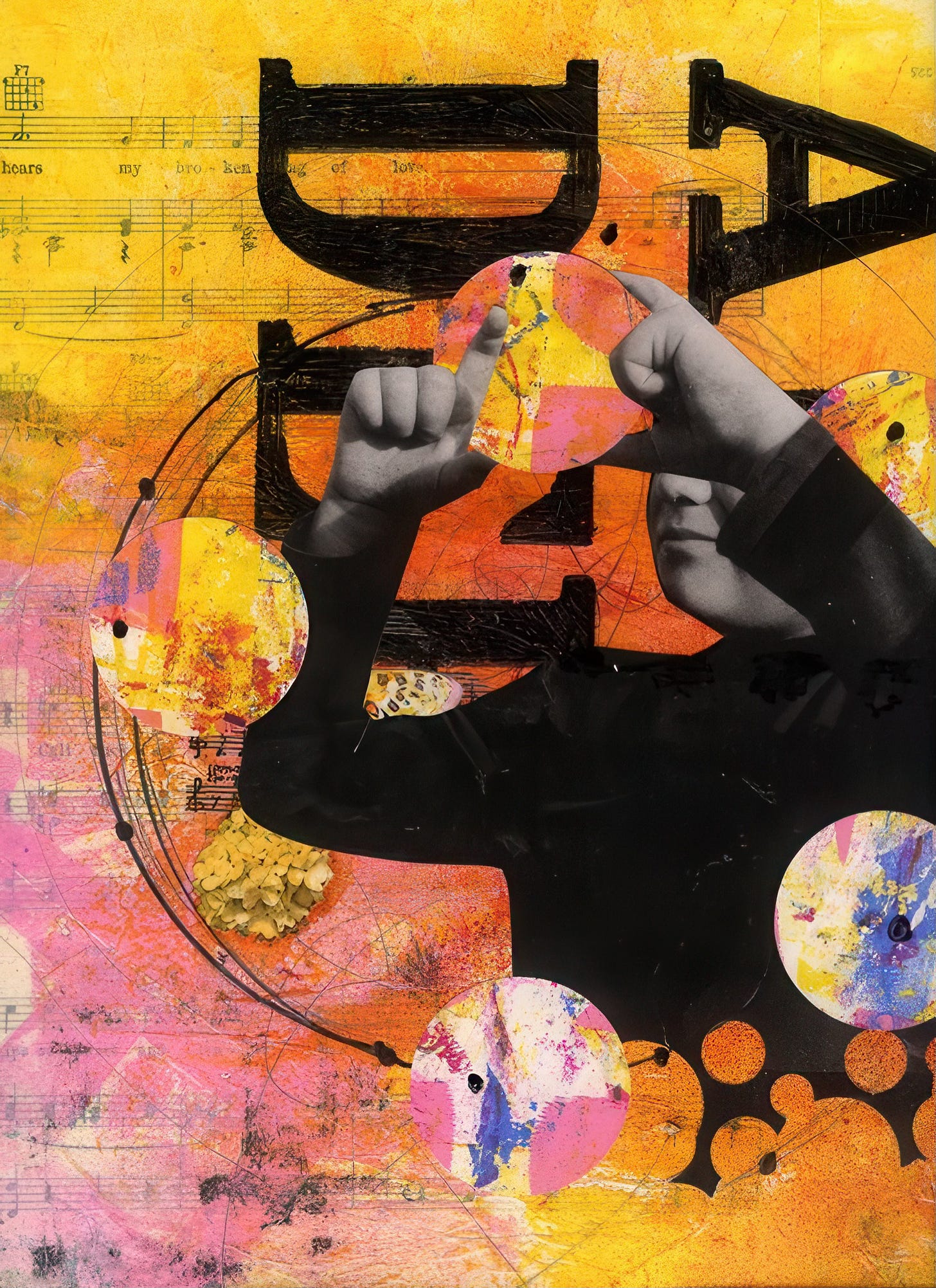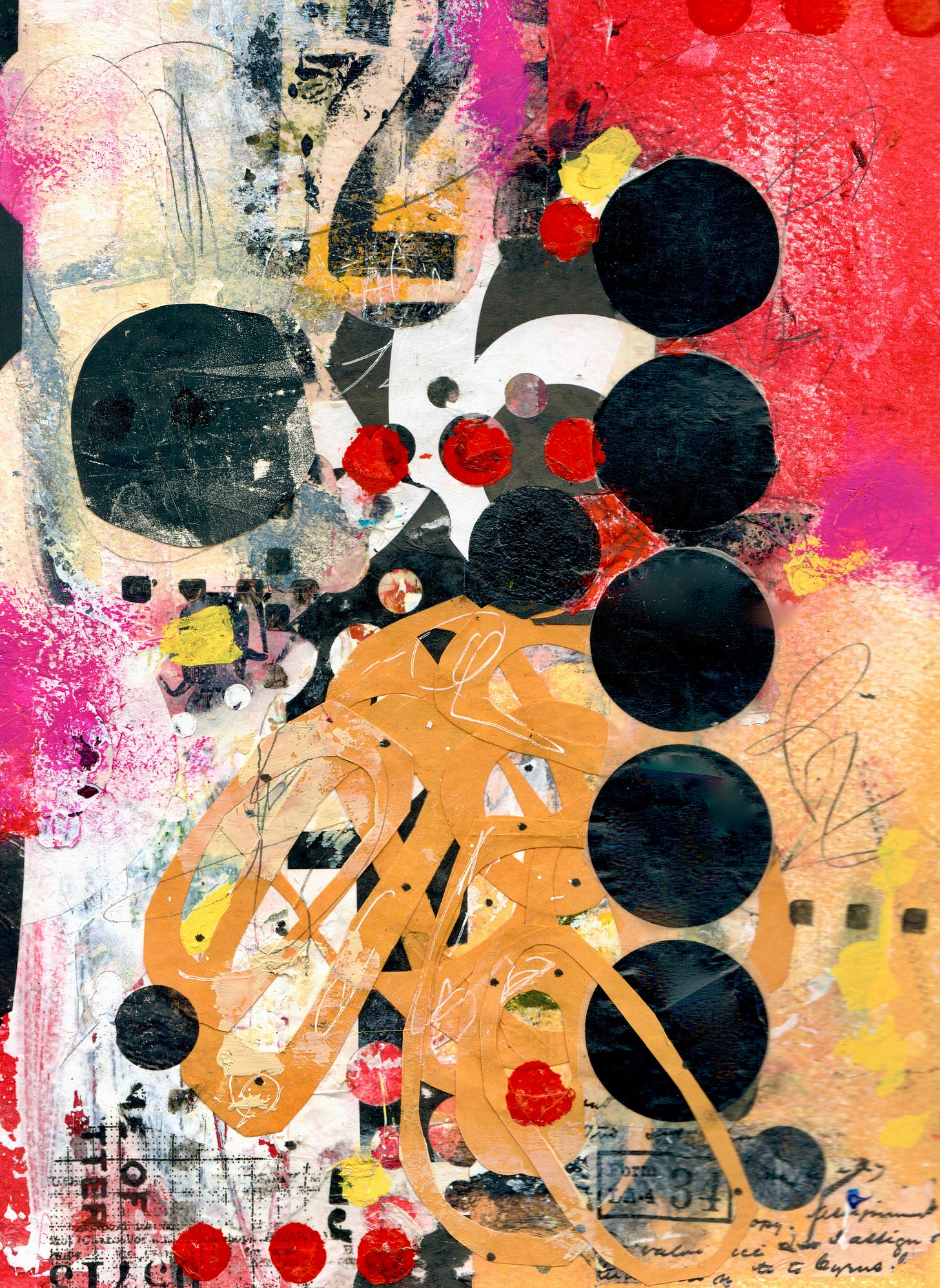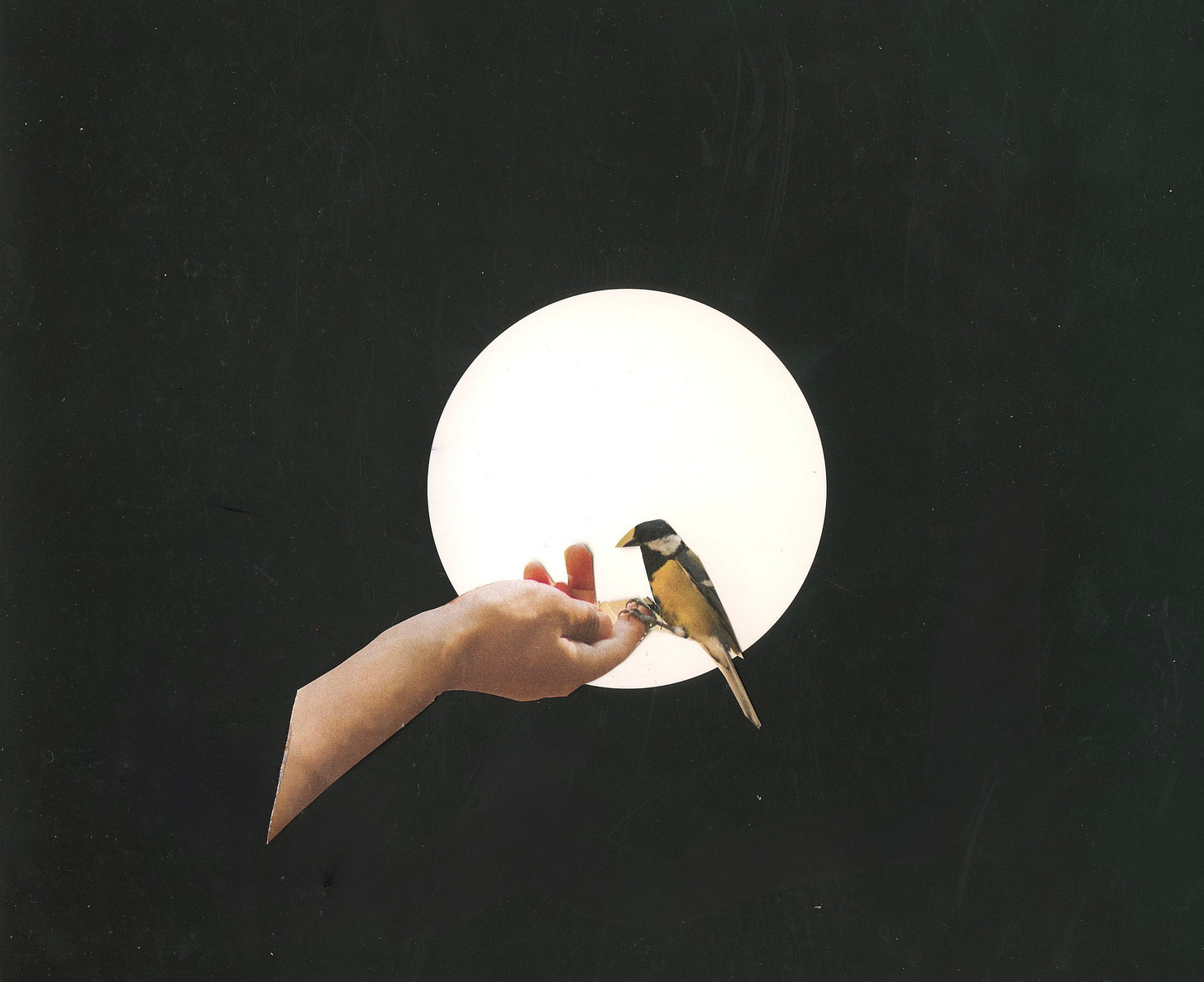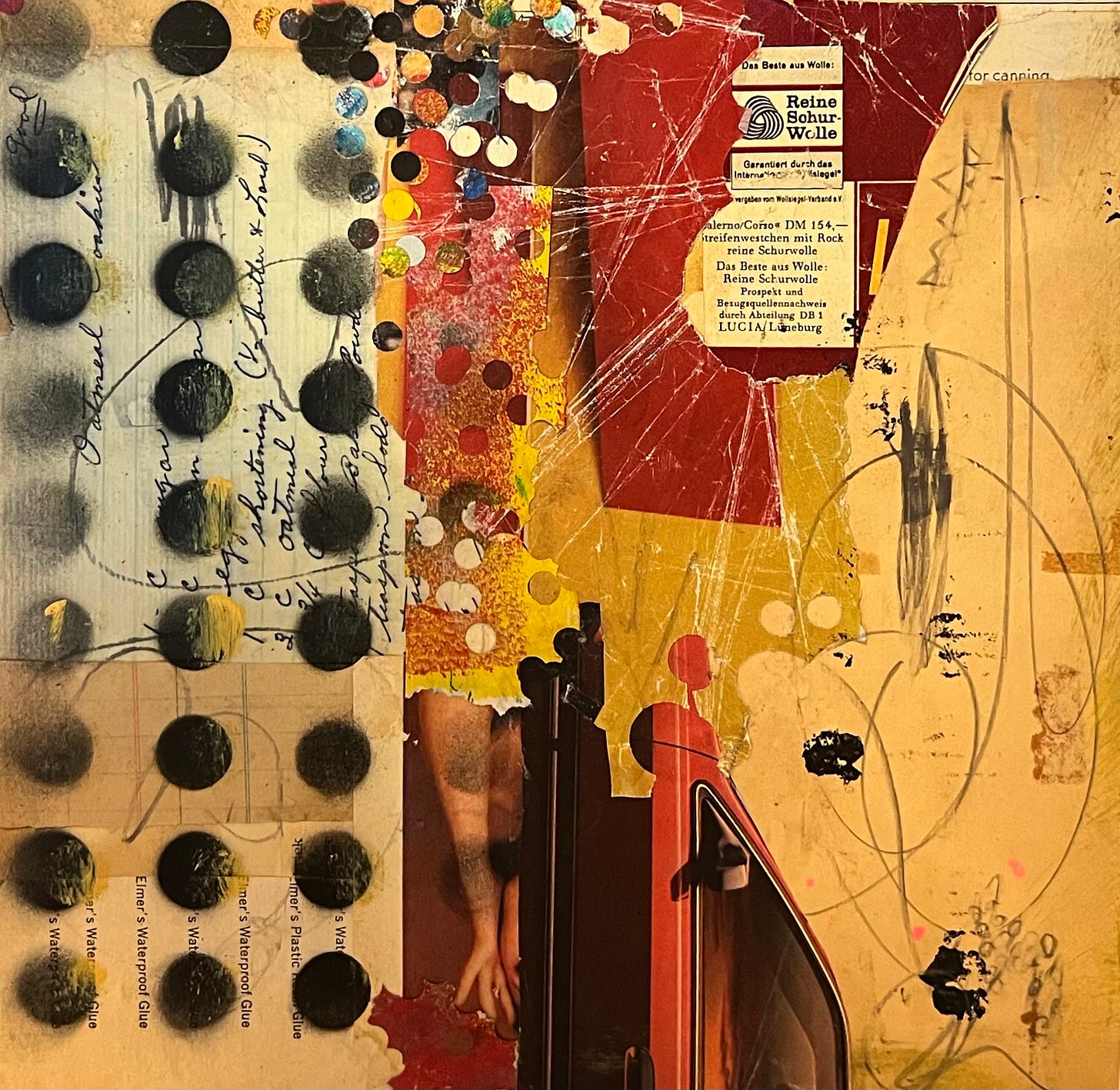Shadow of Absence
Death, Longing & the Nowness of Eternity
I was four when my beloved Grandma Lula died. Ten months later, when I was five, my father was killed in a mining accident. Three and a half months after that, my oldest brother, aged fourteen, drowned in a nearby pond. My thrice-bereaved mother fainted at my brother’s viewing. I saw her fall and thought that she, too, had died.
For the record, I was eleven when my other grandma died and twelve when my last remaining grandparent passed away.
In other words, I was a child well acquainted with death.
There was trauma associated with these deaths, to be certain—especially those of my father and brother. But for me, a five-year-old little girl, that trauma wasn’t so much linked to the deaths themselves—or even to the sudden absence of these pivotal people in my life. Rather, it was the grief of those around me that was most destabilizing. This grief—especially that of my mother, the central figure in my young life—frightened and bewildered me. My world, which had felt predictable and safe, suddenly seemed wobbly and precarious. This instability, compounded by the fear that I could easily lose my mother too (a well-meaning relative informed me at my father’s funeral that I was now “half an orphan”), caused me to draw inward and seek a sense of constancy through attempting to control my small domain. I became fastidious and precise in the arrangement of my few belongings (toys, shoes, books)—and heaven help the sibling who moved anything from its appointed place!
Death became a concrete reality for me. It was not, as for most children, a vague abstraction existing in some nebulous by-and-by. When I was six, a year after the deaths of my father and brother, my mother asked me to keep an eye on my eighteen-month-old baby sister one afternoon while she finished up some tasks inside the house. I got distracted (as six-year-olds are wont to do), and my sister toddled away and fell into the irrigation ditch near our home. My mother—propelled into action by an unembodied woman’s voice saying: “Evelyn! Your baby!”—found her seconds later floating facedown in the water.
I was deeply shaken by this experience. My baby sister nearly died. Because of me. And I clearly understood by then what death meant. It meant that the person who died was never coming back, at least not in this life. And, in this case, the death of my baby sister would have meant that my already devastated mother would never fully recover. This was a fact I intuited even then. I vowed in my young heart that I would never again look away when I was responsible for someone or something—a vow that has profoundly impacted the person I have become, for better and for worse. Intellectually, from the vantage point of an adult, I recognize that a six-year-old child should never have been left in charge of a toddler outdoors near water, but the emotional footprint remains.
Curiously, these early experiences did not cause me to fear death (with the exception of being frightened that my mother would die, leaving me a full orphan). Instead, I became quite philosophical about it. Death would come to all of us, sooner or later. I also understood very young that there were things in life much worse than death. I hated being pitied and didn’t want anyone feeling sorry for me. Far into young adulthood, I often deliberately didn’t tell people about my early losses.
My perhaps surprisingly unruffled view of death resulted, I think, not only from my early unbidden exposure therapy, but also from a very sacred experience I had shortly after the death of my brother. It’s not an experience I share often, but I will now.
I was asleep one night in the small bedroom I shared with my older sister and two of my brothers. I woke up to find my Grandma Lula next to the bed where my sister and I were sleeping. She was dressed in a luminescent white robe and literally glowed from head to foot, and she was gazing down at us with a look of purest love. I don’t know why I didn’t speak to her, but I didn’t. Instead, I got up to go tell my mother. As I walked through the living room, I saw my deceased brother, a bookworm during his life, lying on the sofa, reading. He, too, was wearing white and glowed resplendently. I felt no fear but continued on my way through the kitchen and into the bedroom my mother now shared with my baby sister. There, standing over the bed and looking down at my sleeping mother, was my daddy, all aglow. I didn’t talk to him either—I just crawled into bed next to my mother and fell asleep.
This may simply have been a very vivid dream, of course, but it felt utterly real. And there’s the fact that I woke up the next morning in my mother’s bed.
Whatever the case, I hold this memory close to my heart and accept it as a tender gift of grace which brought a degree of healing and peace to a wounded and bewildered child.
Just how wounded and bewildered I didn’t fully realize until many years later. When I was in my forties, I agreed to do a favor for a friend who was working toward certification in guided meditation by allowing her to “practice” on me. Once I was in a state of deep relaxation, she asked me to choose a moment in my childhood—and then to go there, as fully as possible. I’m not sure why, but I decided to revisit the moment my mother learned of my brother’s death. My friend had me describe the sensory details of that moment with as much clarity as I could, and she invited me to relive it, not as an adult looking back, but as the five-year-old who had experienced it.
Eyes closed, I recounted my memory of this day. It was a lazy afternoon in October of 1966—a beautiful “Indian Summer” kind of a day. The sky was cloudless blue, and there was the slightest whisper of a breeze. The air smelled like fresh-pressed apples. I was sitting on a quilted green-and-gold blanket on the lawn, playing with my six-month-old baby sister. Suddenly, our front door exploded open and my mother came running out. Unearthly high-pitched screams filled the air. At first, I didn’t realize where the sounds were coming from. I had never heard my cheery, down-to-earth mother scream. Before my father’s death three and a half months earlier, I’d rarely even seen her cry. But though she had sobbed in my grandmother’s arms when she learned of Daddy’s death, she hadn’t behaved remotely like this. As she rushed toward us now, face twisted into an unrecognizable mask, I realized that those unearthly wails were coming from her. I felt terror course through my small body. I couldn’t imagine what was wrong. Without stopping, she swooped up my baby sister into her arms and ran, bare-footed, out the front gate and down the dirt road leading to my grandparents’ house—about an eighth of a mile to the south. Unnerved and disoriented, I followed along behind.
I paused here in my narration of these events and realized I was shaking.
“Is there anything you’d like to say to your mother?” my friend gently prompted.
I nodded, eyes still closed. “I’m sorry, Mommy.” I said. “I’m so sorry.”
“Is there anything else you’d like to say?”
And suddenly, I was crying. And from some remote, unplumbed space deep within my soul, something raw and painful and very real was released.
“I’m here too,” I whispered. “Mommy, turn around. I’m here too.”
I was thirty-seven when my mother died after a long battle with cancer, and I finally became a “full orphan.” Hers was the loss I felt most keenly. While genuinely grateful that she had escaped this mortal coil and was no longer suffering, her absence in my life was like an amputation. Edna St. Vincent Millay got it exactly right when she wrote: “Where you used to be, there is a hole in the world, which I find myself constantly walking around in the daytime, and falling in at night.”
Shortly after my mother’s death, I wrote a poem about the transcendent moment of her passing and its impact on my siblings and me.
Somewhere
She strains toward heaven
arms outstretched
like a child wanting to be held
then falls back, outspent,
subdued by gravity’s ponderous sway
How long must she stay
suspended as she is
between fire and air
between here and there
incarnation and release?
Do not rage, mother
(leave the raging to the poet
and his father, now both long dead
despite the raging).
Go gently. Go.
Let go.
We did not know.
We did not know it was so hard
so hard to go
Ceremonial,
we bathe the body
that gave us life
and gave
and gave
we watch
and wait
match breath for fitful breath
and then
a transmutation
as imperceptible
as hushed
as a sigh
(or the absence thereof)
and now it is we
who are suspended
dangling as we are
between grief and relief
holding on and letting go
the notion of Death
and the reality of having been left—
the widest distance of them allDespite my repeated exposure to death as a child (or perhaps even because of it), it’s been just recently that I’ve started to think seriously about my own mortality. I’m realizing how easy it is to breezily proclaim that you’re not worried at all about dying when one is young, healthy, and full of verve. But now, at age sixty-three, I’m starting to catalog all the things I can no longer do with ease (stand up from a seated position on the floor, for example, or recognize a single artist on the iHeart Top 40 chart). And I’m serving as Relief Society president in an aging ward where we’ve lived for over thirty years. It can be excruciating to watch the slow decline of ward members you’ve loved and looked up to for decades. I’m spending a lot of time in hospitals, care centers, and funeral homes these days. The eventuality of my own death has become impossible to ignore.
We all dream of just going to sleep one night once we’ve filled the measure of our creation and not waking up again. But it very rarely works that way. Death is hard. Death can be unbearably cruel. Whether it’s sudden and premature, like my father’s and brother’s, or prolonged and agonizing, like my mother’s, death exacts its toll.
And what is death? Shakespeare famously equated death with sleep. (Ironically, Wordsworth did the same with life: “Our birth is but a sleep and a forgetting.”) In theological terms, death is the separation of the body and the spirit. We who are followers of Jesus Christ believe this separation is temporary. Because of the Savior’s triumph over death, we will all rise again, resurrected beings, spirit and body forever rejoined. “O death, where is thy sting?” (1 Corinthians 15:55).
And yet, still we fear it. My mother-in-law had the most childlike faith of any adult I’ve ever known. As she grew more and more frail in her eighties, she talked often about how she longed to join her sweetheart who had passed away several years earlier. And yet, in her final hours on the earth, she resisted going into “that good night” with a fire that was surprising.
We cling to life. And rightly so. There is so much that is beautiful and wondrous in this world, so many dear relationships. We should yearn to stay for as long as we can. “Because I could not stop for Death,” wrote Emily Dickinson, “He kindly stopped for me.”
Perhaps we fear death so much because, as Goethe put it, “death is a commingling of eternity with time.” The abrupt cessation of the mortal life of a loved one jars us out of our comfortable (but ultimately accurate) sense of infinitude and brings into glaring focus the constructed (and ultimately inaccurate) concept of time. Time is, after all, an illusion. Death appears to be the end of something, when, in truth, it is but a continuation of eternity.
What, then, is the proper way to approach the fact of this dual-natured death? Ideally, with realism and hope, not in denial or fear—relishing and savoring the time we have here on the earth but readying ourselves for a bright and glorious graduation.
When my father-in-law died suddenly of a heart attack in his early eighties, we were shocked to discover that he, an attorney who did estate planning, had not planned for his own demise, assuming, we can only guess, that he still had sufficient time. This lack of preparation for the inevitable created tremendous challenges for his widow. A healthy recognition of the fragility and fleetingness of life both makes it all the more precious and spurs us to confront the certainty of death. Hopefully, it also awakens in us a more wholehearted commitment to our covenantal promise to “mourn with those that mourn; yea, and to comfort those that stand in need of comfort” (Mosiah 18:9). Co-mourning is one of the most cherished gifts we can offer one another in this life. When the death of someone we love shatters our world, the steady nearness of another living being—someone who will sit with us, weep with us, speak the name of our beloved, share our grief without feeling the need to offer platitudes, stand witness to our anguish—is often the only comfort we can absorb, at least in the beginning. We are all like wounded children in the presence of loss, scurrying after understanding down a dusty dirt road, bewildered and yearning for connection, inwardly crying out, “Please, turn around and see me.”
After the deaths of my father and brother, the imperfect but supremely good people of our rural Utah community immediately circled their wagons around our little family and became the living embodiment of the baptismal covenants outlined by Alma at the waters of Mormon. They made sure my brothers always had what they needed for scout camps and that they were included in every father-son outing. Nor did my sisters and I ever attend a daddy-daughter event without a surrogate father from our ward family. These dear, humble ward members were constant and true. Though our family had little from a material standpoint, all my siblings and I were able to participate fully in church camps, church sports, and other church activities. And our neighbors were there for my mother in beautiful ways—upholding, embracing, listening, and just showing up, over and over and over again. And she, in turn, became a master co-mourner in her own right throughout the rest of her days.
My mother fought hard for life when she was first diagnosed with breast cancer at age sixty-seven. She underwent a mastectomy, radiation, and multiple rounds of brutal chemotherapy. And it seemed to work. She had three relatively good years, but then the cancer returned with a vengeance. During a routine checkup, it was discovered that the cancer had metastasized and had invaded both her brain and her lungs. She was given just weeks. I was gutted. I had a quiet, private moment with her shortly after she’d received this prognosis. “Mom,” I said. “How are you feeling about all this? Really?”
Her answer is forever etched upon my heart. “Oh,” she said. “I’m feeling grateful mostly, I guess. And a little excited.”
Grateful? Excited? Neither of those were words I’d expected.
“What do you mean?” I asked.
“Well, grateful that I’ve had such a good life. Such a good, good life.” She paused. “And a little excited because, well . . .” She looked straight at me then. “Sweetie,” she said. “Do you know how long it’s been since I’ve seen your daddy?”
As in most things, my mother, well schooled in both the crucible of affliction and the cradle of compassion, got it right.
Death/Life. Time/Eternity. These appear as contraries, but they are not because death is swallowed up by life and time is subsumed by eternity. Eternity is now, and eternity is forever. Yet, while in this mortal realm, we feel the breach brought on by death, we suffer the separation—keenly and profoundly—as we live on in the shadow of absence. Our belief, our faith cannot completely mitigate this, not as long as we love deeply. Searing grief and a perfect brightness of hope can coexist and not extinguish the other. Because of our Redeemer, we need not fear death, but we must still acknowledge and endure the wrenching pain it brings. Feel it. Absorb it. Share it. We must mourn deeply—both our own losses and with others who mourn. This, perhaps more than anything else, will make us godly—will make us whole.
Sharlee Mullins Glenn has published poetry, essays, short stories, articles, and criticism in various publications, including The New York Times.
Art by Kim Hamburg.








This is a beautiful essay and the artwork is striking. The author's name rang a bell. I believe she was student and or a TA for my husband Don Marshall or possibly for Jon Green so many years ago. I would love to be in touch.
I read this essay in the Summer 2025 issue of Wayfare. It had a profound impact on me! I express my deep gratitude for sharing your story of personal loss and learning. I’ll be returning to this one again.